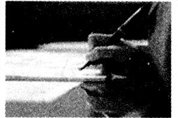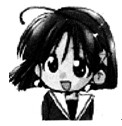| 完形填空。 | |||
| Many people use email to communicate with each other. If you can surf the Internet, it is a great __1__ to send messages easily, quickly and as often as you like. No __2__ is it necessary to find a pen or paper, not to __3__ an envelope or stamp. Are we missing anything by not writing paper letters to people? Must you take the __4__ of writing them if you want to receive such letters? Most people would probably answer, "No, it is a waste of paper __5__ , and this is a much better system." It is hard to be against such a viewpoint. However, I would like to try. I believe that the kinds of letters people __6__ to write were probably more __7__ than billions of emails sent today. Of course, when it __8__ to sending quick messages, email is the best. If __9__ is important, email is particularly useful. __10__, if you want really to touch someone, a letter is more personal. __11__ letters are the most personal. If you can type fast, you can put a lot into a letter, but it lacks (缺 少) the special sense that comes from seeing the handwriting. As long as it is understandable, it doesn't matter how tidy it is. When someone sits down and just writes to you, you will __12__ that when you are reading it. Though I'm a teenager, I admit that I too feel __13__ to receive a letter in the mail. I love seeing my name written by hand on __14__ . You make yourself a cup of coffee, sit down in a comfortable place, open your letter , and enjoy everything that the person puts into those words just for you. What a gift! | |||
| ( ) 1. A. chance ( ) 2. A. longer ( ) 3. A. say ( ) 4. A. question ( ) 5. A. anyway ( ) 6. A. needed ( ) 7. A. important ( ) 8. A. runs ( ) 9. A. money ( ) 10. A. However ( ) 11. A. Long ( ) 12. A. feel ( ) 13. A. excited ( ) 14. A. a letter |
B. way B. much B. speak B. trouble B. too B. used B. useful B. leads B. meaning B. So B. Typed B. love B. disappointed B. a list |
C. fun C. less C. talk C. pleasure C. simply C. got C. helpful C. comes C. feeling C. Therefore C. Handwritten C. want C. puzzled C. a paper |
D. time D. important D. mention D. problem D. just D. agreed D. meaningful D. arrives D. time D. But D. Short D. like D. surprised D. an envelope |
| 阅读理解。 | ||||||||||||||
A School Report
| ||||||||||||||
| l. After reading this,we know this is______ A. a studying plan of Edward Scott B. a teaching plan of Ivy C. a school report of Edward Scott D. a working plan of M. L. Martin 2.Which of the following is NOT mentioned in theform? A. P.E. B. music. C. Mathematics. D. History. 3. Edward Scott's best subject is______ A. science B. English C. geography D. French 4. Edward is not so good at ______ A. science and geography B. mathematics and history C. history and French D. music and English 5. According to the form,which of the following sentences is TRUE? A. Edward can't sing songs very well. B. Edward doesn't do well in science. C. Edward can do better if he works harder next term. D. Edwardlearns two foreign languages in school. |
| 阅读理解。 | |
 Here is an exam notice. Mrs. Johnson gave it to her students last week. Read it and answer the questions.
| |
| 1. Who gave the exam notice to her students? | |
| A. Mr. Johnson. B. Mrs. Johnson. C. Teachers' Office. D. English teacher. | |
| 2. Who could NOT take the English exam? | |
| A. Nancy. She didn't wear her sports shoes on June 22. B. Richard. He did not have breakfast before the exam. C. Wendy. She forgot to take an English dictionary with her. D. Tony. He went to school at 9:50 0n the morning of June 22. | |
| 3. Where was Class 3A at 2: 00 P. M. June 23? | |
| A. In the Piano Room. B. In their classroom. C. In the gym. D. At the Teacher's Office. | |
| 4. When were the written tests held? | |
| A. Only on the morning of June 22. B. Only on the morning of June 23. C. On the morning and afternoon of June 22. D. On the morning and afternoon of June 23. | |
| 5. You must ____ for the PE exam. | |
| A. bring dictionaries B. bring drink C. wear pants and sports shoes D. bring food |
| 完形填空 | ||||
|
| ||||
|
 words
words
